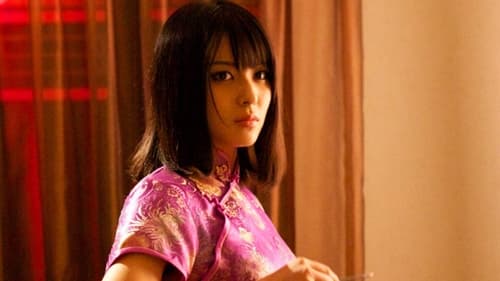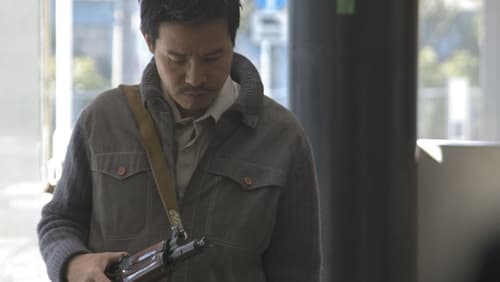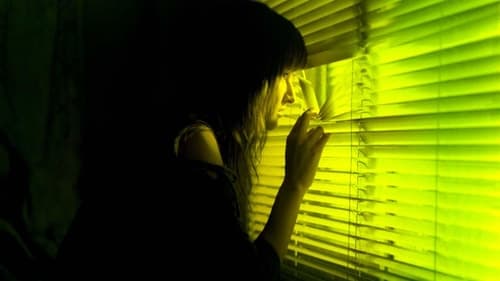
Masahiro Kikuchi
Gin is a 15-year-old boy. He knows that his father is a gay and he wonders if he might be the same. Narumi is a 15-year-old girl. Her mother tells her she should prostitute herself. Narumi decides to go to her father in Tokyo. Gin tells Narumi that he is going as well. The two 15-year-olds set out on a trip to Tokyo.

A wordless man stages an unexplained hunger strike and the people surrounding him exploit his silence to further their own cause...

1726, Sanchu, Okayama Prefecture: farmers negotiate with the feudal domain in order to seek exemption from rising taxes. Infighting leads to suppression by the samurai class, and the farmers band together for battle. It’s a moment of injustice, setting the stage for bravery and sacrifice. However those daring characters remain largely offscreen in Juichiro Yamasaki’s brilliant film. Instead, the cowardly protagonist Jihei (Naohisa Nakagaki) faces a crisis of the risks of rebellion and its aftermath that resonates with our contemporary moment. In this rare independent jidaigeki, Kenta Tawara’s beautiful digital B&W photography channels and refigures luminaries of classical Japanese cinema, boasting rapturous animated sequences by Tomomichi Nakamura and experimental score by Ayako Sasaki.

Originally serialized in Weekly Shonen Jump between 1981 and 1985, -Black Angels- was an action manga about a group of vigilantes delivering justice to evil-doers who had escaped the law. Ochiai will play the primary role as Yukito, the leader of the group. Yajima has been cast as Reira, the captivating heroine of the story.

Kumiko Hoshizaki’s “Akane Sasu Heya” is the story of Maki, a 20-something temp who is sick of her boring job and life in general. The rather bizarre solution she comes up with is to conceive a child behind her boyfriend’s back. Makoto Nagahisa offers the much more impressionistic “Frog.” The story meanders around a bunch of unrelated characters, using experimental techniques like repeated scenes, hallucinatory visuals, blurred shots and disconnected sounds. Lastly, we have “Bouquet Garni,” a much more conventional work from director Junpei Hatano. The plot is centered on a reporter, the relative of a kidnapping victim, and a woman who is obsessed with the case.

Kenji kawamoto
Based on the life of pioneering manga artist Shinichi Abe, "Miyoko asagaya kibun" starts from the 1970's in Asagaya District of Tokyo where Shinichi Abe began his career with then model girlfriend Miyoko.

A story of reuniting twin sisters, who were seperated when young. Maiko, who lives in Hachijo Island, organizes a local festival. Just before the festival starts, she leaves the island to look for her sister Seiko in Tokyo.

Masaru, a 23-year-old who has a passive attitude toward life in general, professes himself as a “genius odd-job-man” but is screwing up all of the time. He is freeloading off his girlfriend Kiriko, who works as a tattoo artist. One day, he is offered to do a rather eccentric job from an otaku-looking public employee named Nirasawa, who claims that Masaru’s voice is necessary in activating a giant robot named Land Zeppelin. He goes on straight-faced that the Earth is about to be attacked by Saturnians, and the robot is necessary in the fight against them. At first, Masaru ignores this far-fetched story, but one day he is framed in a dangerous job he takes on together with his friend Kou, and is driven into a tight squeeze. What will happen to Masaru? Does this robot Land Zeppelin really exist?

Four different worlds are connected through the "Baumkuchen Seeds of Happiness." The World of the Kawanobe's - Three brothers, Taro (Mame Yamada), Jiro (Hiroshi Yamamoto), and Hiroto (Shoichi Honda) who is a so-called NEET (short for "Not in Employment, Education, or Training) make up the Kawanobe household. The World of a Bar - Two men (Mame Yamada and Hiroshi Yamamoto) sits in a bar and discusses the Kawanobe brothers' love story. The World of Yumi - Yumi is reading a novel about the characters in the bar. The World of a Novelist - Novelist Masatoshi (Shoichi Honda) is writing a novel about Yumi. In their own worlds, in their own way, each character will find a way to arrive at their happiness.

15-year-old Hatsuko (Higashi Ayu) lives with her elder brother in a humble town house. Their mother died when they were young, and the father disappeared. The brother (Shioya Shun) left high school before graduation to work at a factory, but spends their meager house-keeping money on adult entertainment. Hatsuko, who is poor and has no friends, finds emotional support in Mishima (Sano Kazuma), a boy in her class, who helps her with her study to go to a high school together. However, Hatsuko's brother causes trouble at the factory and gets the sack. Hatsuko gives up her dream of going to high school. In spring, the modest relationship continues between Mishima, now a high school student, and Hatsuko who works at a biscuit factory. One day, Hatsuko's long-gone father reappears. In a drunken frenzy, he sets fire to the house to go and rejoin the mother, leaving Hatsuko without a place to live. Hatsuko leaves the town on her own, drawing strength from the promise of marriage with Mishima.

Leader
During a suicide attack on an airport, the hand grenade of 'M', one of three terrorists, malfunctions, leaving him captured. Exposed to maltreatment in prison, he slowly loses his grip on reality as he is forced to confront his ideological convictions.


Toru
This new version of Nagasaki's Yami utsu shinzô (1982) is neither a remake nor a sequel. It is both those things, and at the same time it is also a documentary, a portrait of the consequences of passing time, and an occasionally very funny reflection on what the hell the point is of all this filmmaking business anyway. Shigeru Muroi and Takashi Naito, back then young hopefuls willing to take chances, now among the most established and recognisable actors in Japan, return to play the roles they assumed in the 1982 film, each of their characters having gone their own way. Alongside, another young couple (Honda and the ever-brilliant Eguchi) find themselves in the exact same situation as their older counterparts 25 years earlier. Their paths cross, an opportunity arises: for the elder two to redeem part of their own lives, for the younger couple to find a helping hand in their darkest hour.

Asuka is an aspiring model who moves to Tokyo to pursue her career. She moves into a small apartment with a friend of a friend, Kasumi. A bizarre murder occurs in the hotel across the street. The body was mutilated and repositioned into a lurid work of art. After this, a string of murders start happening all around the two girls, as if some crazed serial killer was following them. At the scene of each crime, the perpetrator leaves a black lip print, and is subsequently dubbed "The Black Kiss.

Kyoko Sawai, a TV reporter, is making a report about an idol singer named Emi Kato. Emi and her staff are preparing the promotion of her next tune "Love Craft". And as spiritual accidents happen around her, Kyoko finds out that the woman who composed the tune died seven years before.












